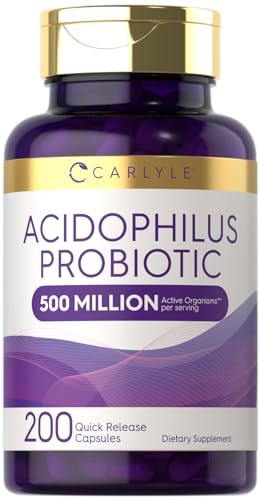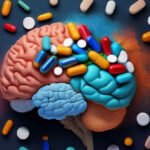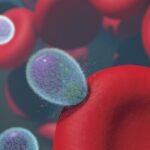Gut health is the foundation of well-being, learn how to optimize digestion, immunity, and mental clarity with practical tips, mindful eating, and gut-friendly products. Gut health lies at the foundation of overall wellness, playing a pivotal role in digestion, immunity, mental clarity, and nutrient absorption. Known as the “second brain,” the gut impacts how we feel, think, and function. By adopting mindful eating habits, embracing gut-friendly lifestyle practices, and avoiding harmful choices, we can nurture our microbiome and thrive.
Your Gut: A Personal Chemical Factory
Think of your gut as your body’s personal chemical factory. When kept in optimal shape, it produces essential vitamins and amino acids that fuel your well-being. From Vitamin B12 for energy and nerve function to amino acids that form the building blocks of proteins, your gut is a marvel of biochemical engineering. By prioritizing gut health, you ensure that this factory runs smoothly, supporting everything from digestion to mental clarity.
Essential Nutrients the Gut Doesn’t Produce
While the gut plays a vital role in nutrient absorption and synthesis, there are key nutrients it cannot produce. Ensuring these are adequately included in your diet—or supplemented when necessary—helps maintain overall well-being:
- Omega-3 Fatty Acids
- Essential for brain health, reducing inflammation, and supporting heart health.
- Found in fatty fish like salmon, flaxseeds, and walnuts, or as supplements (fish oil or algae-derived alternatives).
- Vitamin D
- Crucial for bone health, immunity, and mood regulation.
- Primarily obtained from sunlight or supplements, as it’s not produced in sufficient amounts by the body.
- Iron
- Needed for oxygen transport and energy production.
- Supplementation may be required for those with deficiencies, particularly in cases of poor gut absorption.
- Vitamin B12
- Essential for nerve function, red blood cell formation, and energy.
- Found in animal products and may require supplementation for vegetarians, vegans, or individuals with absorption issues.
- Magnesium
- Important for muscle function, energy production, and bone health.
- Found in leafy greens, nuts, and seeds, but supplementation may benefit those with low dietary intake.
- Calcium
- Key for strong bones and teeth, as well as muscle function.
- Obtained through dairy products, fortified foods, or supplements.
The Role of Gut Health in the Body
The gut is home to the microbiome—a diverse community of trillions of microorganisms. These microbes regulate digestion, synthesize essential nutrients, and even communicate with the brain. Studies show that a balanced gut microbiome supports immunity, reduces inflammation, and fosters nutrient absorption, while an imbalanced microbiome can lead to chronic illnesses, deficiencies, and mental health challenges.
How Gut Health Influences Nutrient Absorption
A thriving gut ensures the efficient absorption and production of key vitamins and minerals:
- Vitamin Absorption and Production:
- Vitamin B12: Crucial for energy and nerve function, B12 absorption depends on gut health; imbalances can cause deficiencies.
- Vitamin K: Produced by gut bacteria, this vitamin supports bone strength and blood clotting.
- Biotin (Vitamin B7): This energy-boosting vitamin is synthesized in the gut.
- Mineral Absorption:
- Iron: Essential for oxygen transport in the blood, iron absorption relies on gut health. Poor function can lead to anemia.
- Calcium and Magnesium: Both minerals, vital for muscle and bone health, depend on gut bacteria for effective absorption.
The Gut-Brain Connection: Impacting Mood and Clarity
The gut-brain axis is a fascinating communication channel where gut microbes produce neurotransmitters like serotonin, significantly influencing mood, sleep, and cognitive function. Research highlights how chronic stress can disrupt gut health, fueling anxiety and inflammation. On the other hand, a flourishing gut microbiome enhances emotional balance and mental clarity.
Practical Eating Habits for Gut Health
- What to Eat:
- Probiotic Foods: Live-culture yogurt, kimchi, kefir, and miso add beneficial bacteria to the gut.
- Prebiotic Foods: Garlic, onions, bananas, and whole grains nourish gut bacteria.
- Fermented Foods: Kombucha, tempeh, and fermented vegetables foster microbial diversity.
- Polyphenol-Rich Foods: Green tea, berries, and dark chocolate reduce inflammation and support microbiome health.
- Omega-3 Fatty Acids: Fatty fish, chia seeds, and flaxseeds maintain microbial balance.
- When and How to Eat:
- Regular Intervals: Eating meals consistently promotes optimal digestion.
- Chewing Thoroughly: Properly breaking down food eases the gut’s workload.
- Mindful Eating: Focusing on meals reduces stress’s negative impact on digestion.
- Hydration: Drink water throughout the day to aid digestion but avoid overhydration during meals to preserve digestive enzyme activity.
What to Avoid for Gut Health
Certain foods and habits can harm gut health:
- Highly processed foods, refined sugars, and artificial sweeteners disrupt the microbiome.
- Excess alcohol and unnecessary antibiotic use can damage gut lining and bacterial balance.
- Chronic stress alters gut function, emphasizing the importance of stress-management techniques like meditation.
- Grilled or Charred Foods: While grilling can be a delicious cooking method, over-charring food can produce harmful compounds like heterocyclic amines (HCAs) and polycyclic aromatic hydrocarbons (PAHs), which may irritate the gut lining and promote inflammation. Enjoy grilled foods in moderation and avoid excessive charring.
Disruptions to Gut Health
Aside from dietary choices, lifestyle factors such as lack of sleep, sedentary behavior, and exposure to toxins can affect gut health over time. For instance, poor sleep negatively impacts the microbiome, while regular exercise enhances microbial diversity.
Restoring Gut Health: Turning the Tide
If your gut health is compromised, it’s never too late to take action:
- Rebuild your microbiome with a probiotic- and prebiotic-rich diet.
- Avoid inflammatory foods and replace them with nutrient-dense, whole foods.
- Seek professional guidance for gut-related conditions like IBS.
Myths and Missteps: Proceeding with Caution
Despite the growing interest in gut health, common misconceptions persist. For example, probiotics alone can’t “fix” the gut—they are most effective when combined with balanced nutrition and lifestyle changes. Similarly, extreme or fad diets can disrupt gut health rather than improve it.
Conclusion: Prioritizing Gut Health for a Holistic Life
Your gut is a powerhouse of holistic well-being. By prioritizing mindful eating habits, embracing gut-friendly lifestyle practices, and staying informed about common pitfalls, you can safeguard your immunity, mental health, and longevity. Remember, caring for your gut means caring for your whole self.
Products to Support Gut Health
To complement your gut-friendly habits, here are some trusted products that can help you nurture your microbiome and promote overall well-being:
1. Probiotic Supplements Probiotics introduce beneficial bacteria to the gut, supporting a balanced microbiome. Look for high-quality supplements with diverse strains tailored to digestion, immunity, or mental clarity. [View on Amazon]
2. Prebiotic Supplements Prebiotics serve as food for good gut bacteria, encouraging their growth. Fiber-rich supplements containing inulin or chicory root are excellent choices. [View on Amazon]
3. Fermented Food Kits DIY fermentation kits for kombucha, sauerkraut, or kimchi let you create gut-friendly foods at home. They’re fun and cost-effective for hands-on health improvement. [View on Amazon]
4. Gut-Health Cookbooks Invest in cookbooks featuring recipes that prioritize probiotic- and prebiotic-rich ingredients. These resources make it simple to integrate gut-friendly meals into your lifestyle. [View on Amazon]
5. Herbal and Fermented Beverages Herbal teas, like ginger or peppermint, soothe digestion, while kombucha and sparkling water brands promote gut health and hydration.
6. Omega-3 Supplements Omega-3 fatty acids from fish oil capsules or plant-based alternatives (like flaxseed oil) support a balanced microbiome and reduce inflammation. [View on Amazon]
7. Kitchen Gadgets for Fermentation Fermentation jars or crocks are ideal for making homemade yogurt, kefir, or fermented vegetables. Perfect for creating fresh, healthy options in your own kitchen. [View on Amazon]
By integrating these products into your routine, you can give your gut the support it needs to stay healthy and thriving. Remember to choose trusted, high-quality brands and consult a healthcare professional if considering new supplements.
Note: This page contains affiliate links. If you make a purchase through these links, we may earn a small commission at no additional cost to you. Thank you for supporting our work!
- ACIDOPHILUS PROBIOTIC: Features 500 million active organisms** per serving for maximum daily support
- COMPLETE FORMULA: Quick release capsules make it an easy addition to any lifestyle or routine!
- ROOTED IN WELLNESS: Carlyle provides premium, honest supplements in your pursuit to healthy living
- Fermentation kit Includes – 4 lead free glass weights; 4 BPA free water airlocks; 4 304 stainless steel wide mouth lids …
- 4 Glass Fermentation Weights Food Grade Materials & Heavy Enough – Samshow food-safe glass is lead free and non-porous s…
- 4 Pickle 304 Stainless Steel Fermenting Lids – The lids are one piece stainless steel and won’t rust. The lids have a si…













